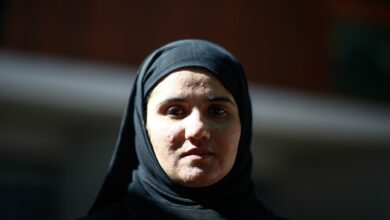Haitian gov’t requests foreign military intervention

Port-au-Prince, Oct 7 (EFE).- Haiti’s government issued a formal appeal Friday for an intervention by foreign military forces to restore order amid cascading economic and political crises aggravated by the re-emergence of cholera a decade after an epidemic that killed thousands.
The Council of Ministers authorized Prime Minister Ariel Henry to ask Haiti’s international partners to provide “effective support for the immediate deployment of a specialized armed force in sufficient numbers, to put an end to the humanitarian crisis throughout the national territory,” according to official daily Le Moniteur.
The council’s resolution blamed the situation on the “insecurity resulting from the criminal actions of the armed bands and of their sponsors.”
In concrete terms, the Henry government wants foreign military assistance to establish a climate conducive to battling the cholera outbreak, ensuring nationwide distribution of fuel and potable water, enabling hospitals to function, reopening schools and reviving the economy.
The resolution also sets the goal of laying the groundwork for the holding of “free, transparent and inclusive elections.”
Haiti has been mired in recession for the last three years and the economic woes are aggravated by political instability and natural disasters.
Henry was installed following the assassination of President Jovenel Moise on July 7, 2021, weeks before southwestern Haiti suffered a powerful earthquake.
Some 4.9 million Haitians, or 43 percent of the population, are in need of aid, according to estimates from the United Nations Office for the Coordination of Humanitarian Affairs (UNOCHA).
And late last year, the Henry administration sharply raised the prices of gasoline, diesel and kerosene, contending that Haiti could no longer afford to spend $300 million a year on fuel subsidies.
Fuel shortages have grown acute in recent weeks due to a blockade of the main depot in Port-au-Prince by the powerful G9 gang, led by flamboyant ex-cop Jimmy “Barbecue” Cherizier.
The lack of fuel has crippled hospitals, banks and the plants that supply the country with safe drinking water.
Hundreds of capital residents have been killed and thousands of others forced by their homes by the violence associated with turf wars among the well-armed gangs, some of them with links to Haiti’s oligarchs.
Protests against Henry, suspected by some of playing a role in the assassination of Moise, have been accompanied by looting.
While the council’s resolution seeking foreign intervention does not mention any governments or international institutions by name, the request is directed to what is known as the Core Group: the ambassadors of the United States, Canada, Brazil, Spain, and the European Union; and the representatives of the United Nations and Organization of American States.
Opposition activists often denounce “interference” by the Core Group, which is particularly resented for its decision to support the unelected Henry as interim prime minister. EFE mm-acm/dr





